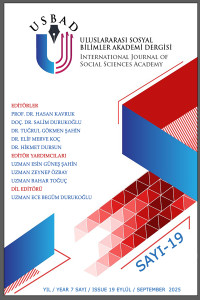Research Article
Issue Reviewers
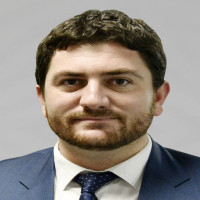
2014-LİSANS-İstanbul Üniversitesi Siyasal Bilgiler Fakültesi İşletme Bölümü (Mezun).
2018-YÜKSEK LİSANS-Necmettin Erbakan Üniversitesi SBE İşletme A.B.D. (Mezun).
2018-DOKTORA-Ankara Üniversitesi SBE İşletme A.B.D. (Teze kadar).
2018/2023-DOKTORA-Necmettin Erbakan Üniversitesi SBE İşletme A.B.D. (Mezun).

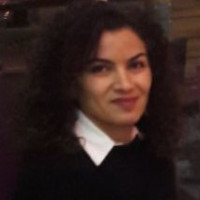

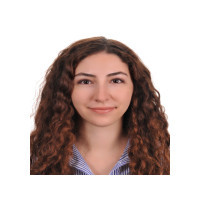

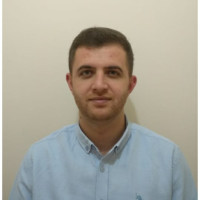
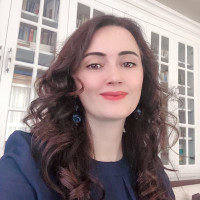
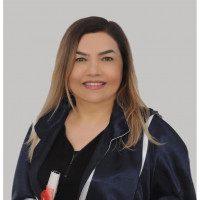
Doç. Dr. Kısmet Özalp (1969, Burdur/Yeşilova)
Sınıf Öğretmenliği (+Yan Alan Müzik), Sosyoloji, Çocuk Gelişimi Lisans programlarından mezun olmuştur. 1993 yılında özel bir şirkette Halkla İlişkiler Sorumlusu olarak çalışmıştır.
Atatürk Üniversitesi Açık ve Uzaktan Öğretim Fakültesi Halkla İlişkiler ve Tanıtım Ön Lisans Programı mezunu olan yazar eğitim ile ilgili alanlarda yüksek lisans ve doktora yapmıştır.
Selçuk Üniversitesi Sosyal Bilimler Enstitüsü Eğitim Bilimleri/ Eğitim Yönetimi, Teftişi, Planlaması ve Ekonomisi Yüksek Lisans, Anadolu Üniversitesi Sosyal Bilimler Enstitüsü İnsan Hakları (Tezsiz) Neu Sosyal Bilimler Enstitüsü Türk Müziği (Tezsiz) Yüksek Lisans programlarını bitirmiştir.
Eğitim Yönetimi ve Sınıf Öğretmenliği olmak üzere iki farklı branşta çift doktora mezunudur.
Üçüncü Doktorasını Neu Sosyal Bilimler Enstitüsü Türk Müziği/Türk Müziği Programı’nda yapmaktadır.
Küçük yaşlardan itibaren müziğe ilgi duyan yazar, Adana Büyükşehir Belediyesi Ali Şenozan Konservatuvarı Türk Müziği programı ile Muğla Büyükşehir Belediyesi Konservatuvarı Türk Müziği programını bitirmiştir. Kurucusu olduğu Dilruba Türk Müziği Topluluğu’nun şefliğini yapmaktadır.
2002 yılından beri Muğla Sıtkı Koçman Üniversitesi’nde öğretim görevlisi olarak çalışmaktadır.
Yök’ten Doçentlik unvanını (Eğitim Yönetimi) Nisan 2022’de almıştır.
Yazarın “öğretmen yetiştirme, eğitim yönetimi, okuma yazma öğretimi” konularında "kitap/kitap bölümü, makale" türünde çok sayıda yayınları bulunmaktadır. Çok sayıda yayını ve diploması olmasına rağmen, yazar yıllardır görev yaptığı üniversitesinden ne öğretim üyeliği ne de doçentlik kadrosu alamamaktadır.
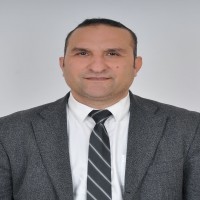
Prof. Dr. Mesut GÜN
Gazi Üniversitesi Eğitim Fakültesi Türkçe Eğitimi bölümü mezunudur. Yüksek lisans eğitimini Çukurova Üniversitesinde; doktora eğitimini ise Selçuk Üniversitesi Eğitim Bilimleri Enstitüsü’nde Türkçe Eğitimi alanında tamamlamıştır. 1998-2014 yılları arasında Millî Eğitim Bakanlığına bağlı ilk ve orta öğretim kurumlarında Türkçe öğretmeni, Uzman Türkçe öğretmeni ve Başöğretmen Türkçe öğretmeni olarak görev yapmıştır. 2014 yılında Nevşehir Hacı Bektaş Veli Üniversitesi Eğitim Fakültesi Türkçe Eğitimi Bölümüne Yrd. Doç. Dr. olarak atanmıştır. Burada Bölüm ve Anabilim dalı başkanlıkları görevleri yanında 2016-2017 yılları arasında TÖMER müdürü olarak Nevşehir Hacı Bektaş Veli Üniversitesinde idari görevler yapmıştır. 2017 yılında Doçent unvanı alan Mesut GÜN; 2020 yılı Ocak ayında Mersin Üniversitesi Türkçe Eğitimi Bölümüne Doçent kadrosu ile atanmış, 2022 yılında ise Profesörlük unvanı almıştır. Mersin Üniversitesi Türkçe Eğitimi Bölümündeki dersleri yanında Mersin Üniversitesi TÖMER Müdürü olarak 2021-2023 yılları arasında görev yapmıştır. Okuma eğitimi, dinleme eğitimi, konuşma eğitimi, yazma eğitimi ve özellikle Türkçenin yabancı dil olarak öğretimi alanlarında birçok makalesi ve tam metin bildirisi bulunan Prof. Dr. Mesut Gün’ün; Öğretim Teknolojileri ve Materyal Tasarımı alanında münferit bir kitabı, Türkçe Öğretimi ve Yabancılara Türkçe Öğretimi alanlarıyla ilgili birçok kitap bölümü bulunmaktadır. İyi derecede İngilizce, orta düzeyde Farsça, başlangıç seviyesinde Arapça ve Almanca bilen Prof. Dr. Mesut GÜN hayat boyu öğrenme idealiyle lisans seviyesinde altı üniversiteden mezun olmuş ve 2024 yılında Mersin Üniversitesi Sosyal Bilimler Enstitüsü Felsefe Bölümünde yüksek lisans eğitimine başlamıştır. Araştırma ve ilgi alanları arasında dil eğitimi ve öğretimi, edebiyat, felsefe, teoloji, yorum bilim, şiir, tarih, sosyoloji, uluslararası ilişkiler ve eleştiri yer almaktadır. Bilimsel araştırma ve yayınları yanında satranç ve masa tenisi gibi sporlara ilgi duymakta; Judo ile antrenör olarak, Aikido ile sporcu olarak ilgilenmeye devam etmektedir.
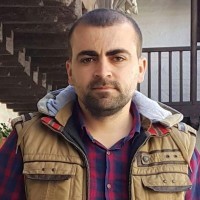
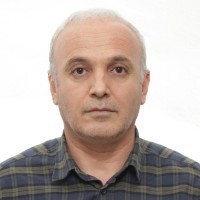
Koç Üniverisitesi Matematik Bölümü mezunu olan Nihan Sölpük yüksek lisansını Sosyal Bilimler alanında İstanbul Bilgi Üniversitesinde ve doktora lisansı Eğitimde Araştırma Yöntemleri ve İstatistik alanında Eskişehir Osmangazi Üniversitesinde tamamlamıştır. Fatih Sultan Mehmet Vakıf Üniversitesi Eğitim Bilimleri Fakültesinde öğretim üyesi olup, Eğitimde Ölçme ve Değerlendirme alanında çalışmaktadır.
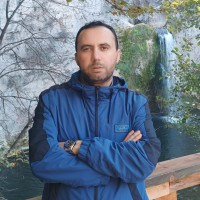



 Web
Web
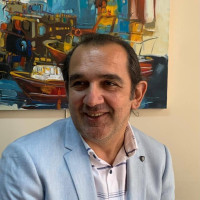
1971 Trabzon’da doğdu.
1995 yılında KTÜ Fatih Eğitim Fakültesi Güzel Sanatlar Eğitimi Bölümü Resim–İş Öğretmenliği Programından mezun oldu.
2000 yılında KTÜ Sosyal Bilimler Enstitüsünde Yüksek Lisans Eğitimini tamamladı.
1995-2002 yılları arasında KTÜ Fatih Eğitim Fakültesi Güzel Sanatlar Eğitimi Bölümü Resim–İş Öğretmenliği Programında Araştırma Görevlisi olarak görev yaptı.
2003 yılı itibariyle 2547 sayılı Yüksek Öğrenim Kanununun 35. maddesi uyarınca Doktora Eğitimi için Gazi Üniversitesi Eğitim Bilimleri Enstitüsüne atandı ve Güzel Sanatlar Eğitimi Bölümü, Resim-İş Eğitimi Anabilim Dalında görevlendirildi.
2009 yılında Gazi Üniversitesi, Eğitim Bilimleri Enstitüsü, Resim-İş Eğitimi Ana Bilim Dalında doktora eğitimini tamamladı.
2010 yılında K.T.Ü. Fatih Eğitim Fakültesi Güzel Sanatlar Eğitimi Bölümüne geri dönerek bu
Bölümde Yrd. Doç. Dr. olarak göreve başladı.
2015 yılında Doçent oldu.
2016-2020 yılları arasında dönem dönem bölüm başkanlığı, Anabilim Dalı Başkanlığı ve Enstitü müdür yardımcılığı görevlerinde bulundu.
2020 yılında Profesör oldu.
2020 yılında TRÜ Güzel Sanatlar ve Tasarım Fakültesi Dekanlığına vekâleten atandı.
2021 yılında TRÜ Güzel Sanatlar ve Tasarım Fakültesi Dekanlığına asaleten atanmış olup halen bu görevini sürdürmektedir.
Sanatçı biri yurt dışı olmak üzere oniki kişisel sergi açmış olup birçok fuar, festival ve ulusal ve uluslararası karma sergiye katılmıştır ve dört ayrı yarışmada da ödülleri bulunmaktadır.
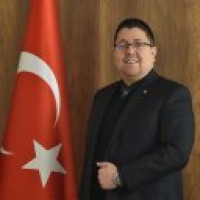
Reha Kılıçhan was born in Istanbul (1986) and grew up in Alanya (1993-2003). He received his bachelor’s degree from Erciyes University (2005-2009), his master's degree from Nevşehir University (2010-2012), and his Ph.D. in Tourism and Hotel Management from Mersin University (2012-2016). His interest in tourism and gastronomy stems from his work in the tourism industry since childhood. After gaining experience in Turkey, he worked in the United States at Cactus Pete’s Resort Casino in Nevada (2007), Four Seasons Resort Jackson Hole in Wyoming (2008), and Spectrum Fine Jewelry Exotic Gems in Alaska (2011). Following his work in the tourism sector, he joined Erciyes University Faculty of Tourism as a Research Assistant. Kılıçhan has worked in various departments within the same institution. He became an Assistant Professor in the Tourism Guidance Department in 2017, an Assistant Professor in the Gastronomy and Culinary Arts Department in 2019, and an Associate Professor in 2021. He was the Department Head of the Tourism Guidance Department (2018-2019) and the Gastronomy and Culinary Arts Department (2020-2023). Additionally, he has been involved in many academic and administrative commissions within Erciyes University and served as a Senate Member from 2017 to 2023. Kılıçhan has also lectured at institutions such as Cappadocia University and Nuh Naci Yazgan University. In addition to teaching, he has supervised and served on the jury of many theses. He has published numerous book chapters, articles, and conference papers, most related to tourism and gastronomy. Kılıçhan also served as the Chairman of the Board of Directors of the Kayseri Gastronomy and Culinary Arts Association (KAGAD) from 2021 to 2023. Currently, he serves as the Head of Gastronomy and Culinary Arts Department at Kayseri University, Faculty of Applied Sciences, and as the Head of Academic Board and Board Member of the Turkish Chefs Federation (TAFED). He is married and has two children.






 Web
Web
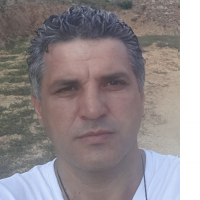

Gazi Üniversitesi Mesleki Eğitim Fakültesi Grafik Öğretmenliği Anabilim Dalı’ndan 2011 yılında mezun oldu. Aynı yıl Gazi Üniversitesi Eğitim Bilimleri Enstitüsü Uygulamalı Sanatlar Eğitimi Bölümü Grafik Eğitimi Bilim Dalı’nda başladığı yüksek lisans eğitimini 2014 yılında tamamladı.
2018 yılında katıldığı Erasmus programı kapsamında Makedonya- Uluslararası Balkan Üniversitesi’nde “Makedonya Hatıra Pulları” isimli ilk kişisel sergisini, 24 Aralık 2021 tarihinde Kastamonu Rıfat Ilgaz Devlet Güzel Sanatlar Galerisi’nde ise “Soluksuz” isimli ikinci kişisel sergisini ve 12 Aralık 2022 tarihinde Kastamonu Üniversitesi Bilgehan Bilgili Merkez Kütüphanesi Güzel Sanatlar Galerisi’nde “Düşün -Büyüklerin Sözleri Sözlerin Büyüğüdür” isimli üçüncü kişisel sergisini açtı.
2015 yılından bu yana yurtiçinde ve yurtdışında birçok sempozyuma, konferansa ve karma sergiye katıldı. Gazi Üniversitesi Eğitim Bilimleri Enstitüsü Güzel Sanatlar Eğitimi Anabilim Dalı, Resim-İş Eğitimi Bilim Dalı’nda 2021 yılında doktora eğitimini tamamlayan Sofya Cihan Canbolat, 2017 yılında atandığı Kastamonu Üniversitesi Güzel Sanatlar ve Tasarım Fakültesi Grafik Tasarımı Bölümü’nde Araştırma Görevlisi Dr. olarak görevini sürdürmektedir.


He graduated from Atatürk University Turkish Language Education program in 1998, completed his master's degree in Turkish Education at Atatürk University Social Sciences Institute between 1998-2000, and his doctorate in Turkish Education at Selçuk University Educational Sciences Institute between 2006-2010. Since 2011, he has been working as a associate professor at Çukurova University, Faculty of Education, Turkish Education Department. His academic studies are mostly on Turkish Education, bilingualism and drama.
1980 yılında Berlin’de doğdu. İlk, orta ve lise öğrenimini Nazilli/Aydın’da tamamladı. 1998 yılında Orta Doğu Teknik Üniversitesinde İngilizce Öğretmenliği Bölümünde yükseköğrenimine başladı. Bu bölümden 2002 yılında mezun oldu. 2005 yılında Dokuz Eylül Üniversitesi Yabancı Dil Olarak Türkçe Öğretimi programında yüksek lisansa başladı. 2008 yılında Prof. Dr. Lütfiye OKTAR’ın yönetiminde “Türkçe Koşullu Yapıların Öğretimine Yönelik Malzeme Tasarımı” başlıklı yüksek lisans tezini tamamlayarak mezun oldu. 2002-2009 yılları arasında MEB bünyesinde İzmir Dikili’de öğretmenlik yaptı. 2009 Aralık ayından beri Pamukkale Üniversitesi Yabancı Diller Yüksekokulunda öğretim görevlisi olarak görev yapmaktadır. 2020 yılında Pamukkale Üniversitesi, Eğitim Bilimleri Enstitüsü, Türkçe Eğitimi Bilim Dalı doktora programında doktora eğitimine başladı. 2024 yılında Prof. Dr. Gökhan ÇETİNKAYA’nın yönetiminde “Yabancı Dil Olarak Türkçe Öğretiminde Değerlendirme Görev Biçimleri: Ders Kitaplarındaki Görünümü, Öğretim Elemanı ve Öğrencilerin Öğretici Bulma Durumları, Öğretim ve Öğrenim Sürecine Etkisi Konusundaki Algıları Üzerine Bir İnceleme” başlıklı doktora tezini tamamlayarak mezun oldu. Dört temel dil becerisinin eğitimi, dilbilgisi, ölçme ve değerlendirme, sınavların döngüsel etkisi ve yabancı dil olarak Türkçe öğretimi alanlarında çalışmaları bulunmaktadır.
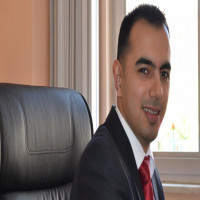
İnönü Üniversitesinde Eğitim Yönetimi alanında Doktora Yaptı.

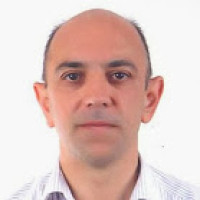
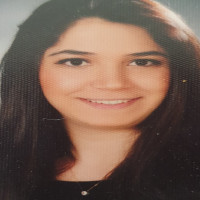
Yağmur completed her secondary education at AAGSL, where she received formal training in music. She plays the viola and piano proficiently. She earned her bachelor’s degree in Turkish Language and Literature Teaching from the Faculty of Education at Başkent University, graduating with honors one year ahead of schedule.
She completed her master’s degree in the Turkish Language Education program at the Graduate School of Educational Sciences, Ankara University. During this period, she worked as an instructor at a public institution and taught Turkish to international students for three years within the scope of a European Union–funded project.
Yağmur has delivered numerous training sessions and seminars on topics such as Children’s Literature Selection, Reading Culture, Academic Turkish, Effective Communication, Institutional Communication, and Public Relations. She has served as a trainer in certified educational programs organized by institutions such as the Union of Municipalities of Turkey (TBB) and the Ministry of National Education (MEB).
She was a member of the advisory board and a trainer in the project known as ÇİKOP, conducted by the R&D Department of the Ministry of National Education. She has also received internationally recognized language training certificates from Malta, the United Kingdom, and Canada.
Yağmur has published several conference papers, journal articles, and book chapters on Teaching Turkish as a Native Language and Teaching Turkish as a Foreign Language. She also works as a writing and language editor for journals indexed in TR Dizin.
She completed her doctoral studies in the Turkish Language Education program at Başkent University’s Graduate School of Educational Sciences, supported by a full scholarship from the Council of Higher Education (YÖK). Since September 2020, she has been serving as the Founding Coordinator and Lecturer of the Turkish Preparatory Unit.
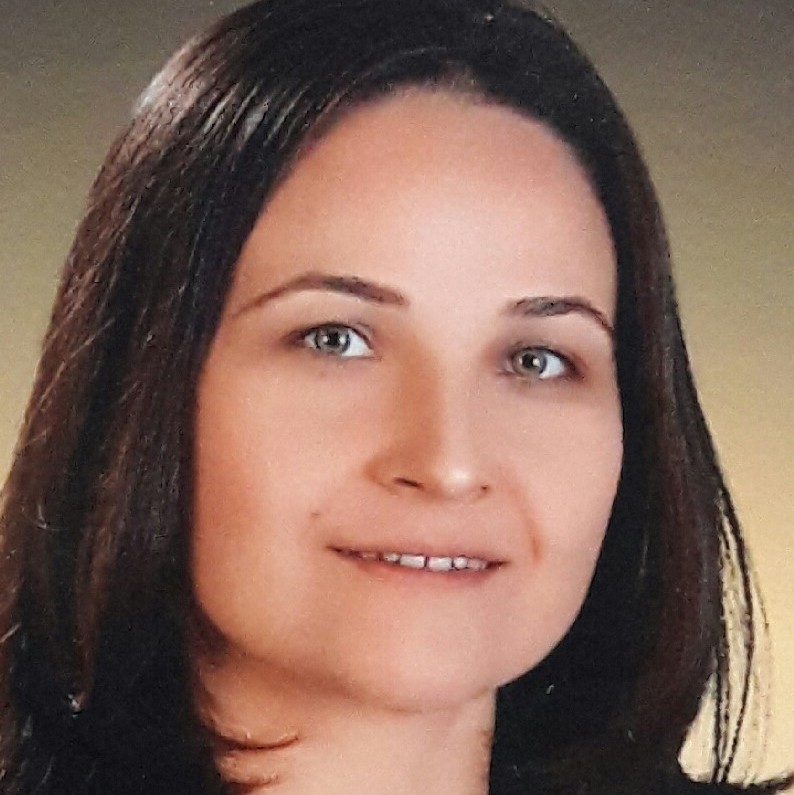
Aim & Scope
1. To be a journal that contributes to science and publishes academic researches.
2. To create qualified references in the field of social sciences and educational sciences, especially in the field of Turkology.
3. to offer the world an alternative to qualified academic e-journal publishing mainly in Turkey and academics in line with expectations.
4. Turcology, literature, history, social sciences and education sciences fields by or from Turkey to the world, to move to an international level from the national characteristics of this branch of science.
5. With Open Access System feature to be searched by more databases and indexes, while providing easy and unlimited access to scientists and readers.
6. System of open access journals, databases, indexes and citation of articles with DOI number to raise rates by increasing the prevalence of Turkey and the world.
7. To prepare the opportunity and environment for making original publications in the world of science by accepting and publishing the articles to be published through plagiarism programs.
INTERNATIONAL ACADEMY JOURNAL OF SOCIAL SCIENCES (USBAD) is an international refereed, e-journal that publishes four times a year and includes articles covering all fields of Turkology, literature, history, social sciences and educational sciences. It is published electronically via Dergipark.
The responsibility of all articles published in the journal of International Journal of Social Sciences (USBAD) in terms of language, science and law belongs to its authors and the rights of publication belongs to USBAD. Published articles may not be published or reproduced in whole or in any way without the written permission of the publisher. The Editorial Board and editors are free to publish or not to publish the articles sent to the journal. Submitted articles are not refundable.
Author Guidelines
INTERNATIONAL JOURNAL OF SOCIAL SCIENCES (USBAD) PUBLICATION PRINCIPLES
General Principles
1 INTERNATIONAL ACADEMY JOURNAL OF SOCIAL SCIENCES (USBAD) Journal is an international refereed journal. It is published 4 issues a year, March, June, September and December. Special or additional issues may be published when necessary. The journal follows the Open Access Policy.
2 INTERNATIONAL JOURNAL OF SOCIAL SCIENCES (USBAD) is a journal that publishes articles on Turkology, literature, history, social sciences and educational sciences. Within this framework, it also publishes original scientific articles, translations, translation-writings, interviews, books, articles, symposiums, panel and other scientific activities and necrology texts. In addition, symposium proceedings may be published, provided that the venue, meeting and date are presented and not published elsewhere. However, any responsibility that may arise from this publication activity rests with the author.
3 Articles submitted to the Journal of International Journal of Social Sciences (USBAD) should not have been published in any media before, and when it is added to the system, another publication should not participate in the publication evaluation process.
4. International Journal of Social Sciences Academy (USBAD) for the publication of those who want to send a manuscript, https://dergipark.org.tr/usbad at the address of the Article Tracking System as a member must send here.
5. The inclusion of any manuscript in the electronic system of the Journal of the International Journal of Social Sciences (USBAD) is accepted as an application for publication and the evaluation process of the manuscript begins.
6. All the processes from the application process to the publication of the manuscript are carried out electronically.
7. The publication and publication rights of the manuscripts sent to the International Journal of Social Sciences (USBAD) for the publication are transferred to the journal. These manuscripts may not be published, reproduced or used in any other publication without permission from the journal management. INTERNATIONAL JOURNAL OF SOCIAL SCIENCES ACADEMY (USBAD) Journal can publish its published texts in various media.
8. Any legal, legal, economic and ethical responsibility that may arise from the articles submitted to the Journal of the International Journal of Social Sciences (USBAD) belongs to the authors, even if the article has been published. The journal accepts no liability.
9th INTERNATIONAL JOURNAL OF SOCIAL SCIENCES (USBAD) Journal is published in Turkish, English, German, French, Russian, Arabic, Persian and so on. Articles from languages are also evaluated and published if it is deemed appropriate to be published by the referees.
Evaluation process
10. International Journal of Social Sciences Academy (USBAD) Journal's system is not included in the manuscript or any references to the identity of the author. The information of the authors of the manuscripts that are deemed appropriate to be published after the referee process is added by the editors at the publication stage.
11. Every article uploaded to the journal of the International Journal of Social Sciences (USBAD) is first evaluated by the editor or assistant editors for their compliance with the principles of writing and publication. As a result of this evaluation, if there are corrections to be made by the author, the manuscript is returned to the author by requesting correction.
12. Articles that do not comply with the writing principles are not sent to the referee.
13. Articles deemed suitable for evaluation in terms of writing and publication principles are directed to the referees. At least two referees are appointed for the evaluation of each manuscript that is approved by the editor. The referees determined for the manuscripts that are included in the evaluation process are selected among the persons who have expertise in the field and department represented by the manuscript.
14. The names of referees and authors are mutually confidential.
15. The evaluation period of the manuscripts sent to the referees is maximum 15 days. The referee who does not make an evaluation within 15 days is given an additional 7 days and a reminder mail is sent. At the end of this process, a new arbitrator is appointed for the article not reported.
16. The article which receives two positive referee reports from the field evaluation is entitled to be published. The manuscript receiving a positive and negative referee report is sent to a third referee and it is determined in accordance with the third referee's report whether or not the manuscript is published.
17. The referees may wish to see the manuscript they wish to correct once more before being published. If this request is stated in the report, the corrected version of the text is sent to the referee by the editor.
18. The authors may object to the arbitrator's report in a reasonable manner and with convincing data. The objections are reviewed by the journal management and, if deemed appropriate, the opinions of a different arbitrator (or referees) may be consulted.
19th INTERNATIONAL JOURNAL OF SOCIAL SCIENCES (USBAD)The period of the evaluation process of the articles added to the ik system can be followed by the authors using their own membership information. The arbitrator process should be monitored meticulously and, as the system is entitled to change only once, any arbitrator assessments should be finalized and reports must be entered into the system for possible changes.
20. Journal editors carefully follow the corrections given by the referees. Accordingly, editors may decide whether or not to publish a manuscript.
Writing Principles
21. Download the “Article Template” in ‘Word’ format under the title of “Application Templates” from the main page of Usbad International Journal of Academy of Social Sciences (https://dergipark.org.tr/tr/pub/usbad). Prepare your article file by organizing your article according to this template.
22. Our journal requires “Extended Abstract-Extended Abstract” in the articles to be published as a requirement of its applications to be scanned in new and important indexes. Details are included in the article template.
Note: Articles that do not comply with the Editorial Principles of the Journal of ULUSLARARASI ACADEMY JOURNAL OF INTERNATIONAL SOCIAL SCIENCES (USBAD) in any respect will not be evaluated.
Ethical Principles and Publication Policy
PUBLICATION ETHICS
The International Academy of Social Sciences Journal aims to adhere to the guidelines and core practices set forth by various organizations, including the Commission on Publication Ethics (COPE) guidelines and the Principles for Transparency and Best Practice in Scholarly Publishing (COPE, DOAJ, OASPA, WAME joint statement). These guidelines and recommendations are designed to promote transparency, integrity and best practices in scholarly publishing.
By adhering to these standards, the journal aims to ensure that the research it publishes is of high quality and meets the ethical standards of the scientific community.
PUBLICATION PRINCIPLES
- With the amendment made in the TR Index Journal Evaluation Criteria in 2020, “Ethics Committee Approval” is requested for articles in all disciplines, including Social Sciences. (See: https://trdizin.gov.tr/about#applicationAndCriterias TR Index Journal Evaluation Criteria Article 8).
- Before submitting your work to our journal, the “Cover Letter” file prepared by our journal should be uploaded to the system by examining whether your work is suitable for the publication criteria of our journal.
- In order to initiate the necessary processes of the studies sent to the International Academy of Social Sciences Journal, the “Copyright Form” prepared by our journal must be uploaded to the system with wet signature.
- Only one article of an author can be published in the same year (same volume), regardless of author ranking.
- Articles submitted without following the journal template will be rejected (returned) by the journal board.
- A study will not be published in the first issue following the submission date, even if the evaluation process is completed. If it meets all the conditions, it will be published in the next issue.
- A maximum of 25 (twenty-five) studies will be published in one issue, taking into account the date of submission to the journal.
- Maximum 20% of the total studies published in one issue can be from researchers working at İnönü University.
- Articles are published in Turkish and English. Authors are expected to submit their manuscripts in full text in Turkish for the peer review process. Studies accepted for publication are sent to the journal in both Turkish and English full text. “Proofreading Certificate” (after acceptance) is required for the English full text of the manuscript.
Ethics Committee Approval and Informed Consent
All research involving human subjects must be reviewed and approved by an ethics committee (e.g. IRB) before it is conducted. The name of the ethics committee, approval number and date must be included in the Methods section of the manuscript. Authors may also be asked to provide a copy of the approval.
If the study is exempt from ethics approval, authors must submit a statement from the ethics committee explaining the exemption. If a manuscript is submitted without ethical approval, the journal will follow COPE's guidelines for assessing ethical concerns. Articles without ethical approval may be rejected if the topic is considered important.
Details of informed consent should be included in the Methods section, along with information about the research process.
- For studies involving human subjects, the authors must confirm that written informed consent has been obtained from all participants and the consent form must be retained by the investigators. For studies involving children under the age of eighteen, consent must be obtained from a parent or guardian. In surveys or interviews, participants' consent for data use should also be confirmed. Personal information should be de-identified unless explicit consent for naming is given.
- Authors are responsible for protecting the anonymity and confidentiality of participants, especially in the case of photographs. Signed releases must be obtained for any images, consent for publication must be provided, and any conditions must be specified. This approval should be stated in the Methods section.
Plagiarism and Ethical Violations
All submissions are subjected to multiple scans using similarity detection software during the peer review and/or production processes. When citing previous work, it must be ensured that all material is properly referenced. Copying text, tables or images from any source (journal articles, books, theses, electronic media, etc.) and presenting them as one's own is considered plagiarism, even if a reference is given. Listing the source in the ‘References’ section does not exempt authors from responsibility for plagiarism.
Authors are strongly encouraged to avoid the following instances of plagiarism or ethical violations:
- Citation Manipulation: Inflating citation counts through self-citation, over-citation of the same journal, or citation stacking is a practice that distorts academic recognition.
- Self-Plagiarism (Text Recycling): It involves reusing passages or sentences from an author's previous work without proper attribution and constitutes a form of plagiarism.
- Salami Slicing: The unethical practice of publishing multiple articles from a single study using the same data set, hypotheses and methods.
- Data Fabrication: The creation of fake data that is not supported by actual research or experiments is considered a serious breach of research integrity.
- Data Manipulation/Falsification: Involves altering data, such as changing images or removing outliers, to mislead or misrepresent findings.
In cases of suspicion of ethical violations such as plagiarism, citation manipulation or data falsification, the Editorial Board will follow COPE (Commission on Publication Ethics) guidelines to ensure that suspicions are addressed in a fair, transparent and consistent manner.
All articles submitted to Usbad International Academy of Social Sciences Journal are scanned by https://intihal.net/ software before publication. The similarity rate should be 20% for original articles and 25% for articles produced from graduate theses. Articles below the similarity rate are accepted for publication. If plagiarism or unethical behavior is detected, the article will be rejected for publication.
OPEN ACCESS POLICY
All articles published in the International Academy of Social Sciences Journal can be permanently accessed online without any charge and without any registration requirement. While protecting the copyrights of their work, authors allow third parties to share, reproduce and distribute content in accordance with the journal's Copyright and Ethics policy.
All published content will be licensed under the Creative Commons Attribution-NonCommercial 4.0 International License (CC BY-NC 4.0), which permits non-commercial use, distribution, and modification, provided the original source is properly attributed.
All journal content is freely accessible at https://dergipark.org.tr/tr/pub/usbad.
COPYRIGHT POLICY
A Copyright Agreement and Authorship Contribution Form must be submitted with articles submitted to the International Academy of Social Sciences Journal. By signing this form, authors protect the copyright of their work and if the article is accepted for publication by the International Academy of Social Sciences Journal, the article will be licensed under the Creative Commons Attribution-NonCommercial 4.0 International License (CC BY-NC 4.0). This license allows users to share, adapt, reproduce, and distribute the content of the journal for non-commercial purposes, provided that the author and the journal are properly attributed.
ADVERTISING POLICY
International Journal of Academy of Social Sciences accepts digital advertisements on its website, provided they are approved by the Editorial Board and management. All advertisements must be clearly labeled as such. Advertisers have no influence on editorial decisions or advertising policies.
For advertising requests, please contact usbaddergi@gmail.com.
International Journal of Academy of Social Sciences conducts a rigorous and transparent double anonymized peer review process to ensure that academic integrity is maintained to the highest standards.
Articles are subjected to this process in which both authors and reviewers remain anonymous to each other. Each manuscript is evaluated by at least two independent external reviewers who are experts in the relevant field. Authors can suggest potential reviewers, but the final selection is made by the editor and the editor is not obliged to follow the author's suggestions.
Confidentiality is essential throughout the review process and reviewers may only share the manuscript with the editor's permission. Reviewers provide timely, impartial, evidence-based and constructive feedback to improve the quality of the manuscript. Suspected instances of research misconduct should be reported confidentially to the editor to protect the integrity of the process. The journal ensures transparency by sharing information about the review process, selection criteria and appeals procedure, and by publishing key data such as acceptance rates and publication times. The final decision to accept, revise or reject an article is made by the Editor-in-Chief, taking into account the recommendations of the Area Editors. Reviewers must disclose any potential conflicts of interest before accepting an invitation to review. All communications between editors and reviewers are confidential.
Articles submitted by members of the editorial board are reviewed by external editors to ensure impartiality, and these external editors must disclose any conflicts of interest. If the peer review process deviates from standard procedures, the type of review is indicated in the manuscript to ensure transparency and accountability.
REVISION DETAILS
Manuscripts requiring minor revision or major revision are responded to by the Editor-in-Chief with a decision letter including comments from reviewers and editors, and receive a deadline for resubmission. Authors must submit a revised manuscript and a detailed “Response to Reviewers” document addressing each comment individually. The response should explain the revisions made and indicate the relevant line numbers in the manuscript.
An annotated version of the manuscript highlighting the changes should also be submitted. Revised manuscripts must be submitted by the date specified in the decision letter. Failure to meet the deadline may result in rejection of the revision. If additional time is needed, authors should request an extension before the original deadline expires.
AUTHORSHIP CRITERIA
Authors of submissions reporting research findings must meet all four criteria set by the International Committee of Medical Journal Editors (ICMJE):
1. Significant contribution to the conception or design of the study, or to the acquisition, analysis or interpretation of the data;
2. Drafting the manuscript or critically reviewing it for important intellectual content;
3. Approval of the final version for publication;
4. agreeing to be responsible for all aspects of the work, ensuring that questions about the accuracy or completeness of any part are appropriately investigated and resolved.
Authors should determine who is eligible for authorship and in what order authors will be listed before submitting their manuscript. The editors of the International Journal of Academy of Social Sciences do not resolve authorship disputes. Any changes to the number or order of authors after initial submission must be explained in writing to the Editor-in-Chief. The editors reserve the right to refer any authorship irregularities to the research officer at the first or corresponding author's institution or employer, or to the appropriate academic ethics authorities.
Authors may use CRediT (Taxonomy of Contributor Roles) to provide information about individual contributions at the time of submission.
Conflict of Interest Statement
Any financial or non-financial conflicts of interest, including relationships with editorial associations, commercial editing companies, medical communications companies, or other organizations relevant to the submission, should be disclosed at the end of the manuscript, just before the References section.
Declaration of Financial Support
All sources of funding should be indicated at the end of the manuscript. Authors should indicate the role, if any, of the study sponsor(s) in the study design, data collection, analysis, interpretation, report writing, and decision to submit the manuscript for publication. If the funding source did not contribute to these areas, the authors should make this clear.
The Role of Artificial Intelligence (AI) in the Article Preparation Process
The International Academy of Social Sciences Journal follows the Commission on Publication Ethics (COPE) guidelines on the use of artificial intelligence (AI) and AI-enabled technologies in article preparation. Authorship requires responsibilities that only humans can fulfill, and authors are responsible for the originality and integrity of their work.
AI tools can be used for language editing, but their use must be clearly indicated in the article. AI cannot be listed as an author because authorship requires intellectual contributions, critical thinking and responsibility, elements that cannot be provided by AI. Maintaining these standards is important to protect the quality and originality of published research.
Post-Publication Correction Requests and Article Retraction Policy
All post-publication correction requests are subject to editorial review. The Editorial Board evaluates the necessity and appropriateness of corrections based on the nature of the error, its impact on the manuscript, and supporting evidence. If approved, the correction will be made in the journal archive. The journal follows ICMJE and COPE guidelines.
Article Retraction (Pre-Publication)
The Article Retraction process applies only to articles in press, which are early versions of articles that may contain errors, accidental duplicate submissions, or ethical violations (e.g., multiple submissions, falsified data, or plagiarism). The HTML and PDF content of withdrawn articles will be removed and replaced with a notice of withdrawal and a link to the journal's withdrawal policy.
Article Retraction (Post-Publication)
Retractions are issued for serious ethical violations such as plagiarism, data fabrication, false authorship, or publication without co-author consent. Retraction notices include the following elements:
- A formal retraction note titled "Retraction: [Article Title]" published in a subsequent issue.
- A watermark reading “Withdrawn” on the PDF of the original article.
- Removal of the HTML version, which provides transparency in corrections while maintaining academic integrity.
Article Removal (Legal and Security Concerns)
In rare cases, an article may need to be permanently removed from the journal's online database due to legal issues, court decisions, defamation or significant health risks. While metadata (title and authors) will be preserved, the article content will be replaced with a legal notice explaining the removal.
Article Replacement
If an article poses a serious health risk, authors can request that it be replaced with a corrected version. In such cases, a retraction notice will be published with a link to the corrected article and a transparent record of the updates will be maintained.
Self-Archiving Policy
Authors are allowed to self-archive their published work on institutional or personal websites as well as open access repositories. When sharing their articles, authors must properly cite the original publication and include the DOI number. Furthermore, authors are encouraged to provide a link to the official website of the publisher, thus ensuring the accuracy and integrity of the scientific record. The version published on the publisher's website is considered the definitive version of the recordings.
DISCLAIMER
The views and opinions expressed in published articles are solely those of the author(s) and do not necessarily reflect the views of the editors, editorial board or publisher. The editors, editorial board and publisher are not responsible for the content of the published articles and do not endorse the views expressed in these articles.
Authors bear full responsibility for the accuracy and integrity of their work. While the journal serves as a platform for the dissemination of research to the scientific community, it does not guarantee the validity of the content.
Price Policy
INTERNATIONAL JOURNAL OF THE ACADEMY OF SOCIAL SCIENCES (USBAD) charges an Article Submission Fee of 1500 TL per article, regardless of the Acceptance or Rejection status of the submitted articles (for editing, layout, spelling and spelling control, etc.). After the article application is made, the journal editorship will inform the authors to pay fees for articles that are positive for plagiarism and preliminary evaluation. The referee evaluation process will be initiated after the fee payment is made and the payment document is sent via e-mail to usbaddergi@gmail.com. Authors will not be refunded for articles that are rejected as a result of referee evaluations or withdrawn for any reason.
Within the scope of the decision taken at the General Assembly of the Council of Higher Education (YÖK) dated 07.03.2019, it can be used in the declaration in the INTERNATIONAL JOURNAL OF SOCIAL SCIENCES ACADEMY (USBAD) Associate Professorship Applications. INTERNATIONAL JOURNAL OF THE ACADEMY OF SOCIAL SCIENCES (USBAD) is not classified as a Predatory/Shady Journal as it is a "journal that charges an article processing fee (APC) regardless of the Acceptance/Rejection condition during the article application".
Indexes
Journal Boards
Scientific Publications Coordinator

Auto-generated board - Please Edit This Title
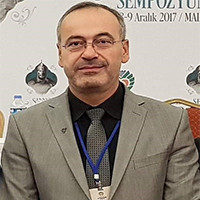
Auto-generated board - Please Edit This Title


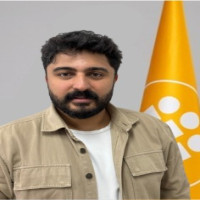

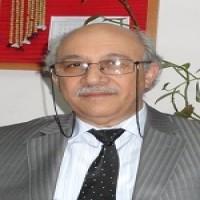
Auto-generated board - Please Edit This Title


Language Editor

Foreign Language Editor


Alan Editörü
İnönü Üniversitesi İktisat Politikası Profesörü

Lisans, yüksek lisans ve doktora: eğitim programları ve öğretim.
Eğitim programları ve öğretim bilim dalı profesörü
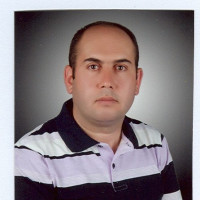
ÖZGEÇMİŞ
1. Adı Soyadı: Bilal GENÇ
2. Doğum Tarihi: 14 Mart 1975
3. Unvanı: Prof. Dr.
Statistics Editor

Yayın ve Danışma Kurulu
Shalala RAMAZANOVA
Bahar GÜNEŞ
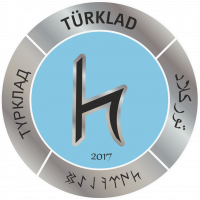


 Web
Web
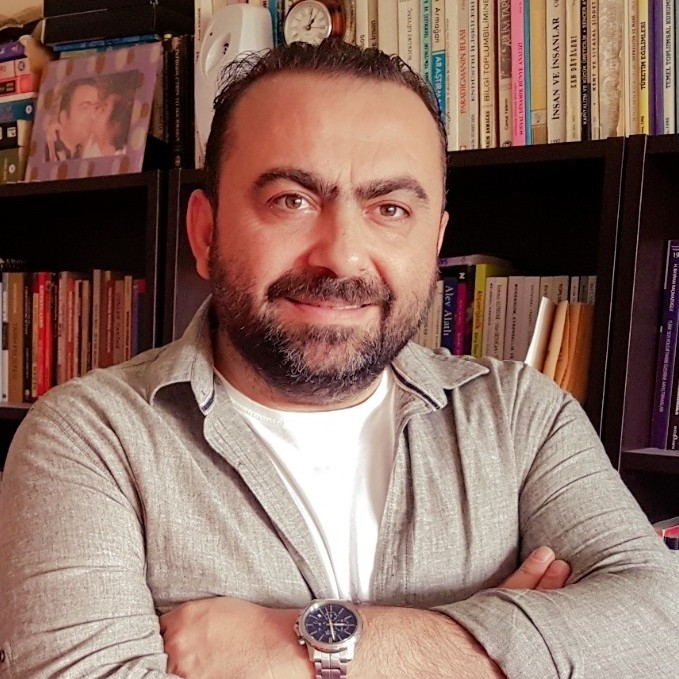

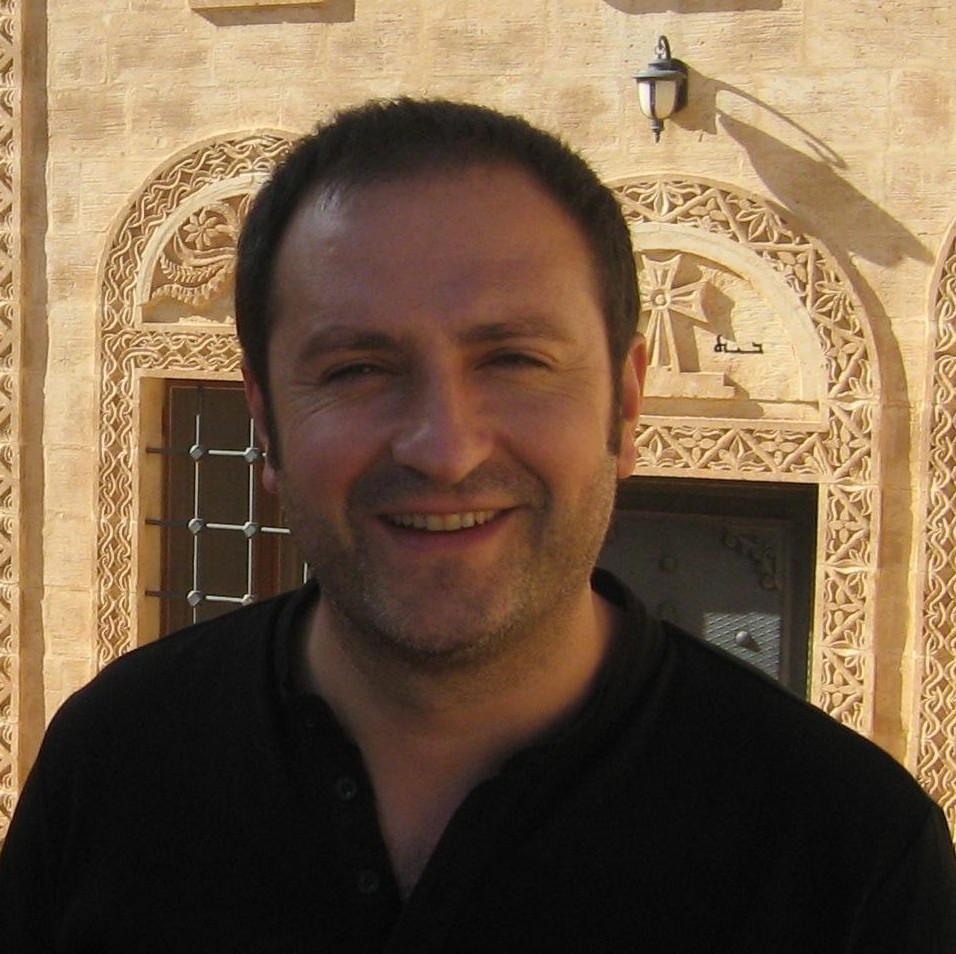
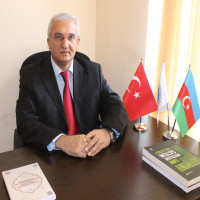
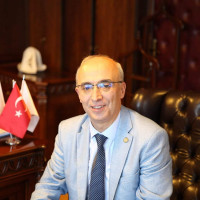
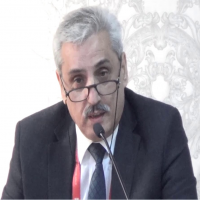
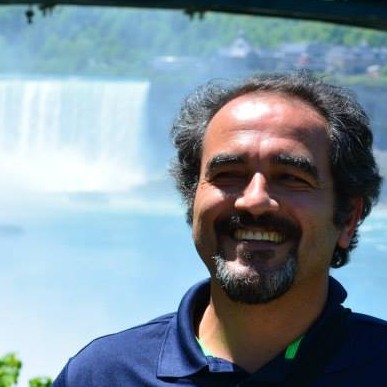

1968 yılında Ankara'da doğdu. İlk ve orta öğrenimini burada tamamladıktan sonra 1985 yılında Kayseri Erciyes Üniversitesi İlahiyat fakültesinde yüksek öğretimine başladı. 1991 yılında mezun olduktan sonra Milli Eğitim'de öğretmenliğe geçti. Aynı yıl Erciyes Üniversitesi Sosyal Bilimler Enstitüsünde İslam Hukuku Anabilim dalında yüksek lisansa başladı. 1993 yılında yeni açılan İnönü Üniversitesi İlahiyat fakültesine araştırma görevlisi oldu. 1994 yılında “1115 Tarihli Şeriye Siciline Göre Kastamonu'da Günlük Hayat” isimli tezde bilimde uzman oldu. Aynı yıl Konya Selçuk Üniversitesi Sosyal Bilimler Enstitüsü'nde İslam Hukuku anabilim dalında doktoraya başladı. 1999 yılında “İslam Hukukuna Göre Siyasi Fikir Hürriyeti” adlı Tezle bilim doktoru oldu. 2000 yılında İnönü Üniversitesi İlahiyat fakültesinde Yardımcı Doçent Doktor olarak atandı. 2017 yılında doçent oldu. Kasım 2017 yılında İnönü Üniversitesi İlahiyat Fakültesine İslam Hukuku Ana Bilim Dalına DOÇENT olarak atandı. 2022 yılında profesör oldu. Evli ve iki çocuk babası olan Ali Duman'ın 40'a yakın makalenin yanında, İzmirli İsmail Hakkı'nın İlmi Hilaf İsimli Kitabının Dipnotları Olarak Sadeleştirilmesi, İlitam Ve İlahiyat Fakülteleri İçin İslam Hukuk Usulü Dersleri, Şia Ve Ehli Sünnet Fıkhına Göre Mut'a, İmam Malik gibi yayınlanmış kitapları ve Çağları Aşan Bilge İmam-ı Azam Ebu Hanife kitabının editörlüğü, pek çok kitapta bölüm yazarlığı pek çok yayına hazır eserleri ve yayınlanmış makaleleri bulunmaktadır .
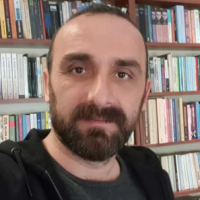

Prof. Dr. Cemile KINACI BARAN
She completed her primary and secondary education in her hometown, Ankara. In 1999, she graduated from high school in Ankara and was admitted to Gazi University, Faculty of Arts and Sciences, Department of Contemporary Turkic Dialects and Literatures, in the North-West Turkic Dialects (Kazakh-Kyrgyz) Program. She graduated from the department as the top-ranking student in 2003.
After completing her undergraduate studies, she went to Geneva, Switzerland, where she studied French. In 2004, she began her master’s studies at Gazi University, Institute of Social Sciences, Department of Contemporary Turkic Dialects and Literatures. In 2005, she was appointed as a Research Assistant in the same department, where she continued her research on Kazakh literature. In 2007, she completed her master’s thesis titled “The Poem Kökşetaw by the Kazakh Poet Säken Seyfullin – A Study in Terms of Translation, Language, and Style.”
In 2007, she began her doctoral studies at Ankara University, Institute of Social Sciences, Department of Contemporary Turkic Dialects and Literatures. In 2008, within the scope of a Gazi University Scientific Research Project titled “An Analysis of the Soviet Writers’ Union Protocols in Moscow and the Impact of These Decisions on Kazakh Soviet Literature (1934–1990),” she conducted research in Moscow for one year. During this period, she also received Russian language training at the Pushkin State Russian Language Institute.
In 2010, she served as a visiting lecturer for one year at Korkyt Ata Kyzylorda State University in Kyzylorda, Kazakhstan, in the Department of Turkic World Turkish Language and Literature. During her stay in Kazakhstan, she conducted various field studies on Kazakh literature.
In 2014, she successfully defended her doctoral dissertation titled “Image and Identity in Kazakh Soviet Literature” and was awarded the title of Doctor. Following the restructuring of Gazi University in 2018 and the establishment of Ankara Hacı Bayram Veli University, she continued her academic career within the newly founded university.
She became an Associate Professor in 2018 and was promoted to Full Professor in 2024 in the Department of Contemporary Turkic Dialects and Literatures at Ankara Hacı Bayram Veli University, where she continues to work today.
Her research focuses on the relationship between ideology and literature in the Turkic World, Soviet-era history and literature, identity studies in the Soviet Turkic World, women’s studies in the Turkic World, contemporary Kazakh literature, Kazakh history, and Kazakh culture.
Prof. Dr. Cemile Kınacı Baran is the author of three books and four translated works and has published numerous scholarly articles and conference papers.
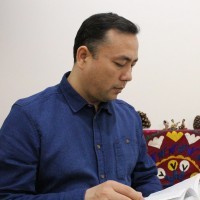




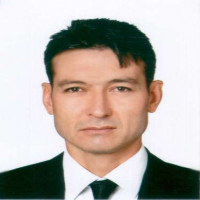

Dr. Ramazan ERTÜRK, 1999 yılında Abant İzzet Baysal Üniversitesi Sınıf Öğretmenliği bölümünü kazanmış ve bu bölümden 2003 yılında mezun olup sınıf öğretmeni olarak Kastamonu iline atanmıştır. Sırasıyla Kastamonu, Düzce ve Bolu illerinde görev yapmıştır. Bu süreçte müdür yetkili öğretmenlik, müdür yardımcılığı ve öğretmenlik görevlerinde bulunmuştur. 2014 yılında Bolu Abant İzzet Baysal Üniversitesi Eğitim Bilimleri Enstitüsü Eğitim Bilimleri Ana Bilim Dalı Eğitim Yönetimi ve Denetimi Bilim Dalında Tezli Yüksek Lisansını, 2021 yılında Bolu Abant İzzet Baysal Üniversitesi Lisansüstü Eğitim Enstitüsü, Eğitim Bilimleri Anabilim Dalı, Eğitim Yönetimi ve Denetimi Bilim Dalında Doktora Programını tamamlamıştır.





















